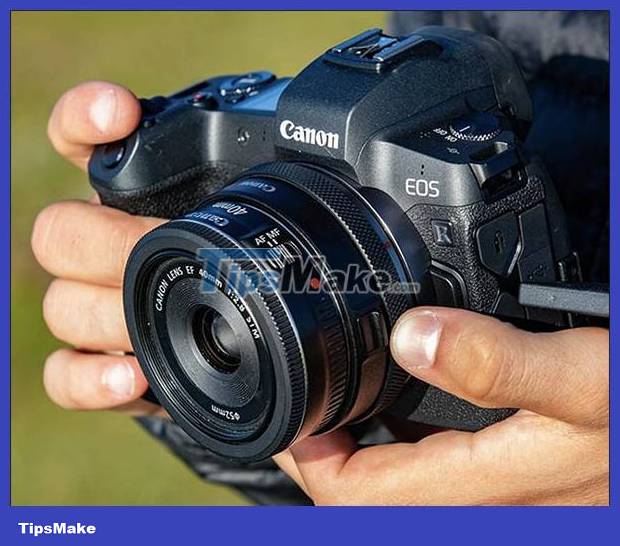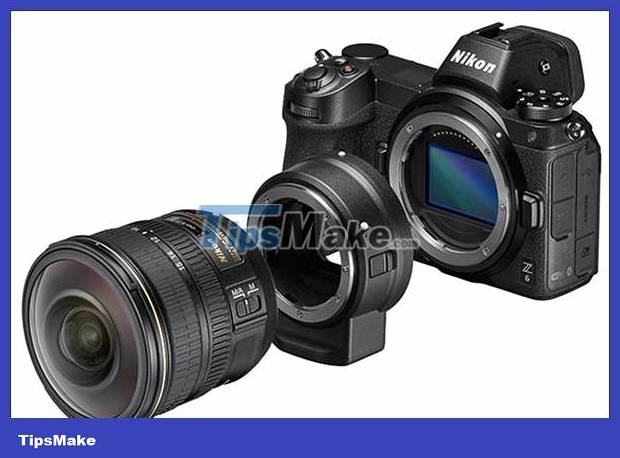Should I use a mount adapter for Mirrorless cameras?
Mirrorless cameras are no longer in the future, they are in the present. If you have just switched from an old DSLR, perhaps you have considered buying a lens adapter so you can use the old lens set.
Benefits of a lens adapter
The biggest effect of a lens adapter probably goes without saying. They are a bridge between lenses that are not compatible with the camera, and can help you take advantage of your old lens set when switching to a camera. new. With many mirrorless cameras costing $1000 or more, a mount adapter is probably an essential. Anyway, camera lenses in general and mirrorless cameras in particular are mostly more expensive than the camera body.
For most photographers, constantly switching systems as well as replacing all DSLR lenses with compatible mirrorless lenses is an extremely expensive expense. Therefore, the adapter is the choice of most professionals. However, what disadvantages does it have besides the above great benefits?
Why is a lens adapter necessary?
Mirrorless cameras are not just mirrorless DSLRs as people think, they are completely different. You can refer to the differences in the two camera lines here. Both Canon and Nikon took this opportunity to redesign the lens mount that has been around for decades. Canon introduced the EF mount in 1987, and Nikon's F mount has been around since 1959.
The most obvious change we can see is that the lens mounts are now larger, and the rear lens elements are located closer to the camera sensor.
Therefore, a lens adapter is extremely necessary because mirrorless is completely different from DSLR. Canon's RF mount isn't just an update to the EF, it's a completely new mount.

The adapter will add size, weight and some hassle
The adapter will add size and weight to your lens. The increase isn't significant, but if you're buying a mirrorless camera for compactness, this is something to consider.
Adding a mount adapter also means adding something to remember when taking photos. If you forget, you won't have any photos in your hand.

Compatibility issues
If you switch from Canon DSLR to Canon mirrorless and use a lens adapter, everything becomes quite easy. If the devices do not come from the same manufacturer, you will encounter many difficulties.
Even if you switch from Nikon DSLR to Nikon mirrorless and use the Nikon adapter, there will still be some connection issues. Most new lenses will have no problem, as they have an autofocus motor built in. However, with these motorless adapters, Nikon AF and AF-D lenses can only focus manually.
Furthermore, installing an adapter takes a lot of time, especially when you use camera bodies and lenses from two different brands. Typically, cheaper converters require more manual setup. They also make the image less stable.
Autofocus will be slower
The autofocus modes of DSLR and mirrorless are slightly different. DSLRs have a separate focus sensor while mirrorless cameras mainly rely on the sensor built into the image sensor. Mirrorless or DSLR lenses are designed to focus only on their camera type.
This also means that if you use the lens via an adapter, autofocus will be slower than if you don't use it. This is especially important when photographing action or fast-moving objects.
You should read it
- ★ Fujifilm X-E4 Quick Review: Much changed compared to previous generations, but in a positive or negative direction?
- ★ Sony adds advanced features to mirrorless cameras that turn over 2000USD
- ★ Why are mirrorless cameras increasingly popular?
- ★ How to mount the hard drive and partition using the Linux command line
- ★ Sony Xperia 1 II review: For phone filmmakers, these cameras will be hard to beat